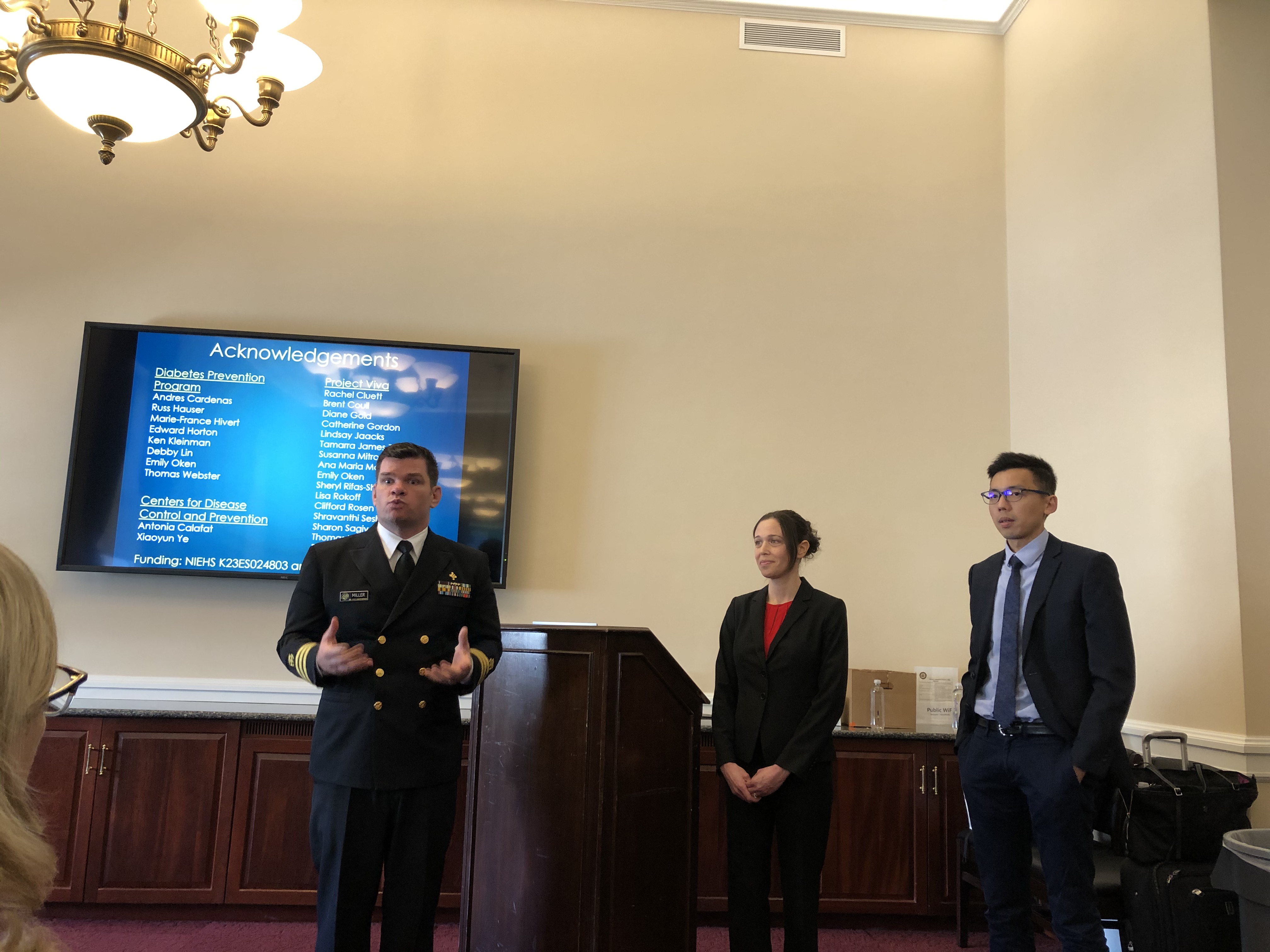On Wednesday, November 6, the Endocrine Society hosted a congressional briefing to share the latest science with policy makers on how research conducted and funded by the National Institute of Environmental Health Sciences (NIEHS) is helping us understand and address the health effects of exposure to per- and polyfluoroalkyl substances, also known as PFAS.
The briefing was organized in collaboration with the Michael J. Fox Foundation for Parkinson’s Research and the Friends of the National Institute of Environmental Health Sciences (NIEHS) and sponsored by Representatives Dan Kildee (D-MI) and Brian Fitzpatrick (R-PA), co-chairs of the Bipartisan Congressional PFAS Task Force.
During the briefing, attendees heard from expert scientists about widespread contamination issues and diverse health effects attributed to PFAS exposure. Mark Miller, MS, MBA, PhD, chief of staff, NIEHS, gave an overview of NIEHS’ research portfolio and various other activities to help address PFAS contamination among communities.
The Society is highly involved in raising awareness about PFAS exposure and consequent health effects due to the ability of these chemicals to interfere with endocrine systems and cause disease.
Zeyan Liew, PhD, MPH, shared some of his research exploring the effects of PFAS on maternal thyroid function and potential neurodevelopmental outcomes in exposed children. “Prenatal exposures to PFAS are associated with a range of adverse health outcomes in children, including some sex-specific effects,” Liew explains. “It is critical for the Congress to hear about the latest science on these effects so that they can make informed decisions and better protect the health of their constituents.”
Endocrine Society member Abby Fleisch, MD, MPH, then shared insights gathered from her research on cohort studies exploring how PFAS may play a role in obesity and osteoporosis across the lifespan. “Our research raises several important questions about the health effects of PFAS exposure – like when during the lifespan do PFAS have the strongest effects on obesity?” she says. “More NIH-funded studies are needed to answer these and many other questions.”
The briefing was extraordinarily well attended, with over 85 congressional staff from the House and Senate packing the room to learn more about an area of intense national interest. Attendees were highly engaged, staying in the room following the program to ask questions of the speakers and discuss next steps in their research programs.

The Society is highly involved in raising awareness about PFAS exposure and consequent health effects due to the ability of these chemicals to interfere with endocrine systems and cause disease. We also strongly support the work of the Friends of NIEHS to ensure that the NIH/NIEHS receives steady, sustainable increases in funding to advance research on PFAS and other environmental toxicants. We will continue to educate policymakers, the media, and other stakeholders about NIH’s critical role in developing scientific knowledge on these chemicals and informing regulatory activity to reduce harmful exposures.

